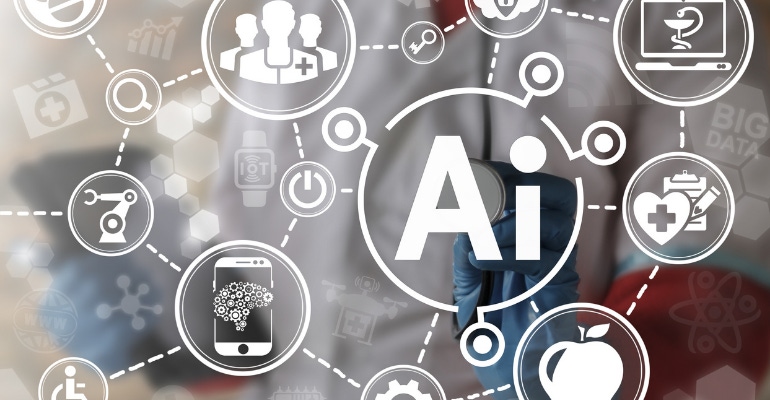Today, artificial intelligence and big data are democratizing medical knowledge in ways that were not previously thought possible.
April 15, 2021

At its root, evidence-based medicine is being practiced when healthcare professionals use the best evidence available to make treatment decisions. It is the end result of combining clinical acumen and patient values with the best available research information – as opposed to simply relying on one’s accumulated clinical experience. But evidence-based medicine, a term coined in the early 1990s, has long been easier said than delivered. That is until recently.
Today, artificial intelligence and big data are democratizing medical knowledge in ways that were not previously thought possible. Medical knowledge platforms like Pathway Medical are leading the charge by combining these technologies with a streamlined user interface in order to improve care and facilitate better patient outcomes. This combination is helping healthcare professionals diagnose and treat patients more efficiently than traditional research methods.
The Pathway platform is currently being delivered as a mobile app that healthcare professionals worldwide can download. The app provides interactive guidance on diagnosis and treatment, and enables healthcare professionals to instantly access hundreds of point-of-care guideline summaries, key findings from landmark trials, clinical calculators and more. The platform uses natural language processing to provide a more efficient knowledge base for diagnosis and treatment recommendations based on clinical research, with curated excerpts and links to the original text. The company is currently developing an enterprise version of the platform for health systems, payers, and other healthcare solution providers.
“When we launched Pathway, our goal was to develop a mobile solution that helped healthcare professionals diagnose and treat patients more efficiently, based on the best clinical data available,” said Jonathan Hershon Saint-Jean, CEO and co-founder at Pathway Medical. “Since then, the platform has evolved from a reference tool into a structured knowledge base that encodes complex relationships between clinical findings, diseases and treatments, as well as the evidence that the latter are based on.”
The success of new computational and machine learning approaches for evidence-based medicine is largely dependent on the quality, reliability and volume of the source data they are based on. Pathway’s algorithms mine more than 100 million medical research sources, and its system includes more than 1 million structured data points. By offering this data to healthcare professionals first and foremost, Pathway has taken an important step in validating the clinical usefulness of a data science approach to distilling gold standard medical knowledge into a machine-readable, human-friendly format.
“With a net promoter score above 65, we have a highly engaged, highly enthusiastic user base that reaches across 34 medical specialties in over 80 different countries,” Saint-Jean said.
Investors are betting big on the power of AI to solve medicine’s informational challenges. In December, Curai Health, a primary care company that focuses on patient-centered healthcare delivery, raised $27.5 million in series B funding for its platform. The Palo Alto, CA-based startup offers text-based services that enable patients to chat with available healthcare professionals about an urgent health concern at any time, or to follow up with the same physician across multiple visits. Blending the best clinical care with sophisticated AI and clinical data sources, Curai Health is a care model focused on the demands of an exploding global population.
In addition, IBM Watson Health and EBSCO Information Services announced a partnership last year in a similar effort to enhance clinical decision support by combining natural language processing and AI with peer-reviewed clinical content. Startups and large-scale companies alike are harnessing the power of AI to develop more intelligent, trusted and efficient decision-support solutions. The result is positive momentum in the democratization and streamlining of medical knowledge.
Solutions like Pathway and Curai Health couldn’t have come at a better time, as healthcare professionals are drowning in information, patients, and processes. The rate at which medical literature is being published, revised, and critiqued is too rapid for any single healthcare professional to keep up with. Traditional clinical decision support tools and healthcare delivery methods are neither streamlined, modular, or intelligent enough for the realities of our digital, post-COVID world.
Not only is the traditional, textbook way of diagnosing and treating patients cumbersome, it is also taking a toll on the health of healthcare professionals. The overwhelming amount of medical information that physicians must digest, combined with the endless administrative tasks they are required to perform using outdated tools and interfaces, has led physician morale to an all-time low. Two-thirds of U.S. physicians have reported that they’re burned out or depressed, and physician suicide rates are double that of the general public. Add the inherent stress that a role involving people’s lives brings, and you can see the picture of a profession in crisis.
This job dissatisfaction doesn’t hurt just professionals. Increasingly, it’s impacting their patient relationships, as well. Barriers created by outdated methods of acquiring medical knowledge are the primary culprit.
“Pathway fills an unmet need for clinicians to have easy and user-friendly access to clinical guideline recommendations,” said Jonathan Afilalo, MD, a cardiologist and associate professor of medicine at McGill University. “The status quo alternative, which is clearly suboptimal, involves jumping through hoops to find guidelines and distill their essential message.”
It’s definitely a new era for the practice of evidence-based care, and big data and artificial intelligence are leading the way for better patient outcomes, reduced physician burnout, and overall improved healthcare delivery.
About the Author(s)
You May Also Like


